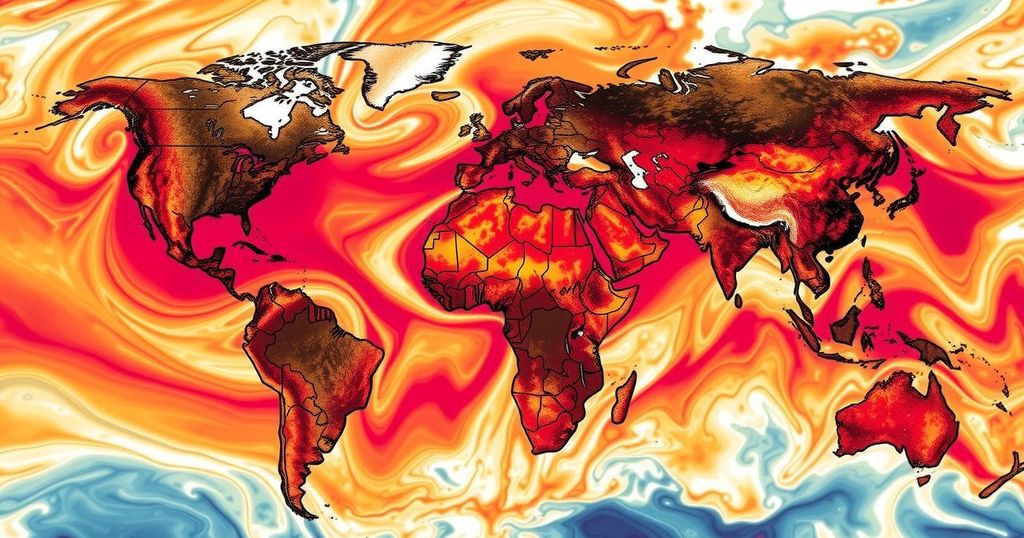In 2024, extreme weather events intensified, linked to human-induced climate change, resulting in 41 additional days of dangerous heat globally. Small island nations suffered the most, and the impacts included severe health risks and biodiversity loss in the Amazon. The urgency for reduced emissions and a transition away from fossil fuels is increasingly apparent.
The year 2024 has been characterized by unprecedented extreme weather events, with climate change significantly contributing to a dramatic increase in dangerous heat days, amounting to an additional 41 days globally, as reported by the non-profit organization Climate Central. Despite the start of the year being marked by frigid temperatures, the consequences of human-induced warming have been starkly apparent, with severe heatwaves, droughts, wildfires, and floods resulting in extensive loss of life and displacement of populations. Small island nations and developing regions have been particularly affected, facing heightened public health risks due to these climatic changes, whose long-term impacts are still being assessed.
Climate change has proven to be a more influential factor in various environmental disasters than El Niño, notably influencing the unprecedented drought experienced in the Amazon region. This area, crucial for its role as a global carbon sink, has seen significant biodiversity loss exacerbated by prolonged drought conditions and wildfires. Flooding disasters have similarly altered life across various nations, including Sudan, Brazil, and Dubai. Analysis from Climate Central indicates that 15 out of 16 floods they studied were directly linked to rainfall intensified by climate change, revealing significant deficiencies in evacuation and flood defense strategies.
Additionally, the oceans have absorbed much of this heat, which has contributed to the formation of more powerful storms like Hurricane Helene and Typhoon Gaemi. Recent climate research indicates that storms currently exhibit stronger wind speeds and increased rainfall due to the ongoing crisis of global warming. Specifically, hurricanes in the Atlantic between 2019 and 2023 were reported to be one category stronger than they would have been in the absence of anthropogenic effects. Therefore, the findings underscore the pressing urgency for substantial emission reductions and a transition away from reliance on fossil fuels.
The article highlights the critical effects of climate change on global weather patterns and extreme events, showcasing a significant increase in the number of dangerous heat days. As temperatures continue to rise, the implications are felt more acutely by vulnerable populations, particularly in developing regions. The findings from Climate Central serve to emphasize the urgent need for action to mitigate these impacts through more robust climate policies and sustainability efforts.
In summary, the extreme weather conditions of 2024 underscore the alarming rate at which climate change is influencing our planet. With the additional 41 days of dangerous heat and a host of other environmental catastrophes, it is evident that immediate measures must be taken to reduce emissions and foster a sustainable relationship with our environment. This scenario affirms the critical need for global cooperation to avert further climate disaster.
Original Source: www.energylivenews.com






